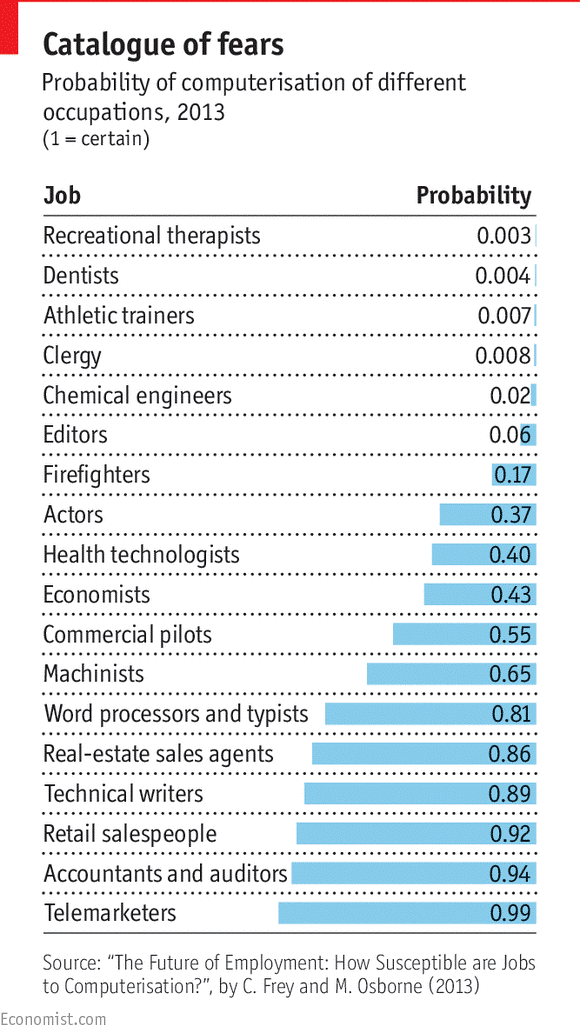While reading a news “Uber will cut 40,000 jobs in London” (because of its’ driverless cars), I was thinking about the situation in our country. Though we are far behind, the impact is inevitable. The world of business is currently experiencing an increased acceleration in automation.
Artificial intelligence (AI) is now taking over most of the occupations in the service industry, and some technological savvy hotels are utilizing apps to serve their customers.
The uneasiness regarding automation is apparent and below I’ll discuss how automation will change the business landscape in the near future.
The Debate on Business Automation
Currently, there is a highly charged debate on the subject of automation and whether computers rank higher in the human workforce. One side highlights a high level of optimism while the other only sees detriments.
But the quest to automate is driven by a desire to enhance productivity, improve quality and reduce the costs of doing business. The market is now highly competitive, and customers are unforgiving when it comes to the issue of quality and pricing. As a matter of fact, the need for efficiency in production is leading the push for automation.
The History of Business Automation
A report published by Oxford Martin School on the future of employment suggests that up to 47% of the workforce in the United States is at risk of replacement by automation. The figure is even higher for developing countries with up to two-thirds middle-class jobs at risk.
But the issue of automation and machines replacing human workers is not new. The industrial revolution saw the introduction of assembly-line that made particular tasks easier cutting the workforce significantly. This continued with the 20th-century computer revolution that diminished the need to hire a large of workers in the manufacturing sector and clerical-based positions.
The computer revolution increased productivity levels, efficiency, and quality to unprecedented levels. The 21st-century digital revolution is where computers can deal with highly complex tasks.
The Affected
The thinking of some people is that automation will affect the low-skill and low-wage jobs, but nothing could be further from the truth.
Middle-income jobs such as clerks, inspectors, junior lawyers, office workers and chefs among others are at risk. Computers excel in non-dynamic and linear systems. Any position centered on direct and finite knowledge is apparently at risk.
This means any job that doesn’t require creativity and is highly repetitive can be taken over by automation.

Cornerstone Capital Group, an investment advisory company, estimates that up to 7.5 million jobs in the retail sector are at risk. The most affected will be the women as they are the majority retail cashiers.
One in every ten American workers is in the retail sector meaning that automation will have far-reaching impacts on the US economy. The restaurant industry is also not safe as human workers are at risk as machines could take over their work.
How to Embrace Automation
The sooner you accept the inevitability of automation, the better. As a small business owner, you should embrace automation and concentrate on how you can improve your business and be competitive. Automation can relieve you of administrative tasks leaving you to focus on building new business relationships and planning your long-term vision.
Robots perfect the repetitive tasks but will struggle where there is a significant variation. For example, the most advanced robotic arm may excel at piecing together a particular item like the chair but will struggle with a completely different object. Humans don’t have this problem, and this means that is possible to automate-proof your job by adding to your skillset.
No amount of automation can take over tasks requiring interpersonal, social and persuasion skills. There is no replacing nurturing, negotiating and teaching abilities in any way. A computer cannot efficiently convince a potential customer to purchase a particular product over another.
A total replacement of the call canter representative will also not be possible as the computer cannot talk through a customer’s frustrations with a specific product. Such tasks are entirely a reserve of human workers. A robot can make a product but can’t sell directly.
Final Word
It’s often said that death and taxes are inevitable. Business automation is now in the same bracket of the things must happen, sooner or later. The integration of artificial intelligence will significantly change the business landscape and impact the global economy.
However, that does not mean machines will completely replace human workforce. There are still several tasks that demand a human touch such as interpersonal and negotiation skills. Functions that require creativity and varied skillset are also irreplaceable.
As a business, you can protect yourself by embracing automation to make it easier for you. Automate as much as you can and concentrate on creating new relationships and opportunities.






